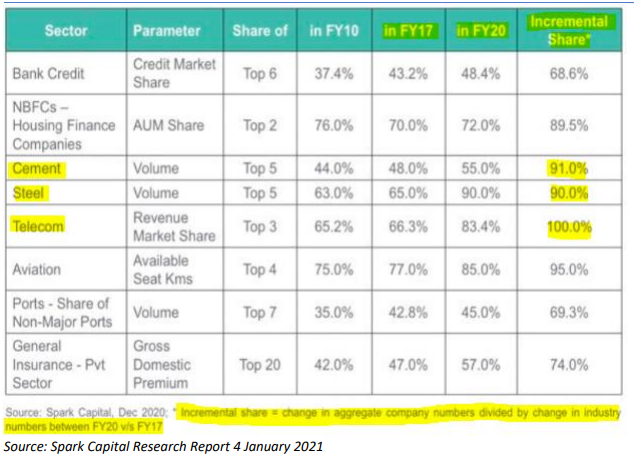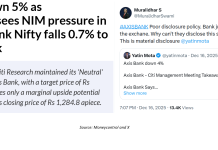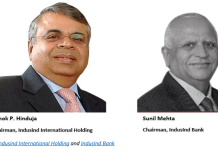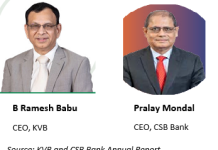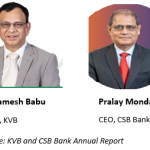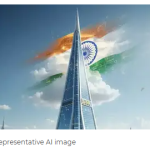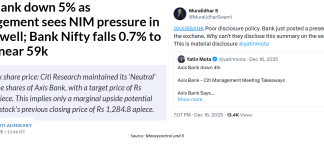EXECUTIVE SUMMARY. In the last 3 years, studies have revealed the unprecedented acceleration and concentration of profits and economic power accruing at the pinnacle of corporate India. The large corporates have become bigger and the small corporates have fallen further behind. This has happened not only on account of superior entrepreneurship but also as a result of conscious state policy. In theory, a state committed to a free market intervenes to break up monopolies and at least regulate oligopolies to prevent them engaging in anti-competitive practices, but in India the state has actively worked to increase the dominance of large corporates.
In the last two decades, firms in sectors such as civil aviation and telecom made giant investments and expanded their market aggressively, even at the cost of profits. Now the winners are in a position to consolidate. It appears investments and profit growth in corporate India will be linked increasingly to monopolization rather than on expanding the market. Studies already reveal this unfolding, and in future the concentration of economic power may only increase, while the smaller players may be marginalised. (The informal sector, where the bulk of employment is to be found, appears to be shrinking rapidly.)
The Indian government has now openly embraced an economic model of promoting a few large national champions in certain industries and trying to attract large foreign direct investment in critical sectors such as electronics. Government subsidies directed towards these select companies are likely to be justified on the plea that economies of scale are required in order to be globally competitive, and innovation and investment must be rewarded.
Although overall economic growth may be anaemic, the identified large companies may continue to grow by taking over smaller players or capturing their market shares. Investors in the capital market are investing in these select companies despite the bleak demand scenario, perhaps on the expectation that state policy would help such companies become even more powerful and enjoy complete pricing power (as competition is wiped out).
DISCLOSURE
I, Hemindra Hazari, am a Securities and Exchange Board of India (SEBI) registered independent research analyst (Regd. No. INH000000594). Views expressed in this Insight accurately reflect my personal opinion about the referenced securities and issuers and/or other subject matter as appropriate. This Insight does not contain and is not based on any non-public, material information. To the best of my knowledge, the views expressed in this Insight comply with Indian law as well as applicable law in the country from which it is posted. I have not been commissioned to write this Insight or hold any specific opinion on the securities referenced therein. This Insight is for informational purposes only and is not intended to provide financial, investment or other professional advice. It should not be construed as an offer to sell, a solicitation of an offer to buy, or a recommendation for any security.

